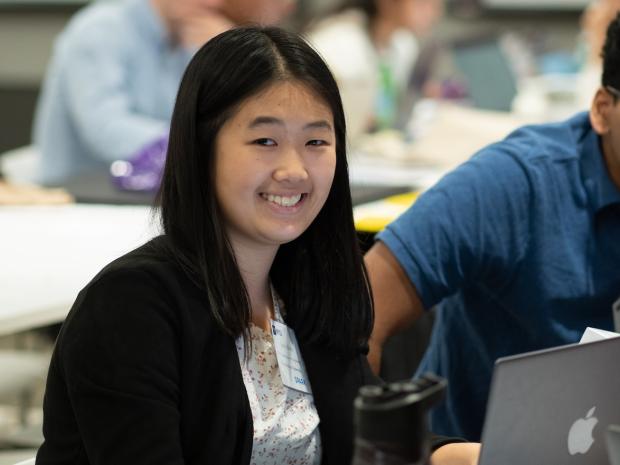Minors
in Technology, Culture and Society

English for Tandon Students
Tandon students may earn a minor in English under an arrangement between NYU Tandon’s Technology, Culture, and Society Department and NYU’s College of Arts and Sciences English Department. This minor is especially designed for Tandon students to allow for the particular demands of completing a Tandon degree. It should be noted that the requirements for the Tandon English minor are different from those of a CAS English minor.
Feminism and Science, Technology, Engineering and Math
The Feminism and Science, Technology, Engineering and Math (FSTEM) minor trains students to have a critical understanding of the ways that difference and diversity, including gender, race, nationality, class, and ability, shape and are shaped by modern science and technology. Courses for the minor introduce students to the history of women in STEM, the construction of scientific theories of gender and racial difference, queer theory, designing for diversity, and the relationship between gender and disability. Feminist and other student-centered pedagogies encourage students to connect course content to the real world through in-class activities, independent research, writing assignments, engagement with community organizations, and design briefs.
In contemporary STEM fields, professionals must be equipped with the knowledge and tools to identify and decrease bias and unfairness in the design of technical systems, like AI and large-scale infrastructure projects. This minor, open to all Tandon students, prepares students to face these challenges head on and change the world for the better.
Integrated Design and Media
The minor in Integrated Design and Media is intended for students interested in developing their knowledge and practical skills in and around design and media production technology. As with the BS degree in Integrated Design and Media, courses provide theoretical context and also teach hands-on production expertise in various areas, such as digital filmmaking, web design, 3D graphics, game design, and digital audio. This minor is valuable for students who want to seize their own means of production in their primary fields, allowing them to design, create, and publish media content within the intellectual context of design and media in the 21st century.
Science and Technology Studies
The Science and Technology Studies Minor consists of coursework that examines the complex issues around how scientific and technological knowledge determine how we understand society, and how science and technology are shaped by society.
Sustainable Urban Environments
The program in Sustainable Urban Environments (SUE) prepares students to join scholars, policymakers, and other professionals as they work to create sustainable urban areas. The SUE program combines the liberal arts and technology, to ensure that students are conversant with both the contemporary technical and social problems of sustainability that face cities. Students in the minor can take courses in sustainable cities, urban policy, and city design, as well as courses in civil engineering and infrastructure planning. This minor is open to all NYU majors.

